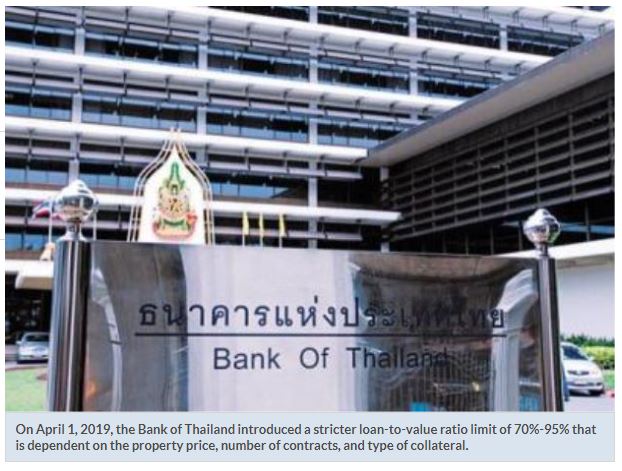S&P Global Ratings believes Thailand’s economic risk remains high
KUALA LUMPUR: S&P Global Ratings believes the economic risk in Thailand remains high on a global comparison due to its low per capita GDP despite its diversified economy.
In its report entitled “Banking industry country risk Assessment: Thailand” issued on Monday, it pointed out the slower credit growth in the past couple of years amid an economic recovery in 2017 and 2018 had led to some easing in the buildup of economic imbalances.
S&P Global Ratings expected this to persist for a couple of years at least, despite its expectation of a pick up in the credit growth.
“That said, in our view, the improvement in the economic imbalances has not led to any material improvement in the high economic risk faced by Thai banks.
“We now believe that credit risk is extremely high in Thailand. Our revised view on credit risk takes into account relaxed lending and underwriting standards in the banking industry.
“Household debt and corporate debt remain very high, particularly in the context of the country’s low income levels and limited debt-servicing capacity. In part, this is due to the relaxed lending and underwriting standards in the Thai banking industry, which has propelled loan growth, especially in the mortgage segment,” it said.
The ratings agency said a large proportion of highly stable core customer deposits supported Thailand’s banking industry.
It expected the industry structure to remain largely stable over the next three years, despite tax incentives that the government announced in mid-2018 to encourage the merger of local banks.
S&P Global Ratings believed that a few large banks would continue to dominate the market, though it might see some consolidation in the mid-size to smaller bank space.
“We see some market distortion, mainly arising from unfavourable competitive practices by non-banks. Thailand’s bank regulations are broadly in line with international standards, in our view.
“We view the trend for economic risk as stable. While the buildup of economic imbalances is easing, banks’ asset quality is stabilising, with reported nonperforming loan (NPL) ratios remaining range bound at about 3% in 2018,” it said. It expects the NPL ratios to remain largely unchanged in 2019.
Overall improved GDP growth is likely to support asset quality. That said credit risk is extremely high in Thailand, given the very high household debt and corporate debt and relaxed lending and underwriting standards in the Thai banking industry.
On April 1, 2019, the Bank of Thailand introduced a stricter loan-to-value ratio limit of 70%-95% that is dependent on the property price, number of contracts, and type of collateral. In our view, this will help curtail risk at the margin, but these norms are still lenient.
“Thailand’s institutional framework and competitive dynamics should remain stable over the next two years. The tax incentives for bank mergers may lead to some mergers at mid-size banks or small banks space, but this is unlikely to meaningfully change the Thai banking structure.
“We anticipate that the banking sector’s funding profile will remain largely unchanged during this period, although it could deteriorate slightly because deposits may not be able to keep pace with higher loan growth.
“In our view, the government’s steps to reform state-owned enterprises could help tackle market distortions arising from competition from nonbanks, although challenges remain in making these measures effective,” S&P Global Ratings said.
Source: https://www.thestar.com.my/business/business-news/2019/07/15/sp-global-ratings-believes-thailands-economic-risk-remains-high/#hptxTbREG664p2WU.99


 Thailand
Thailand




